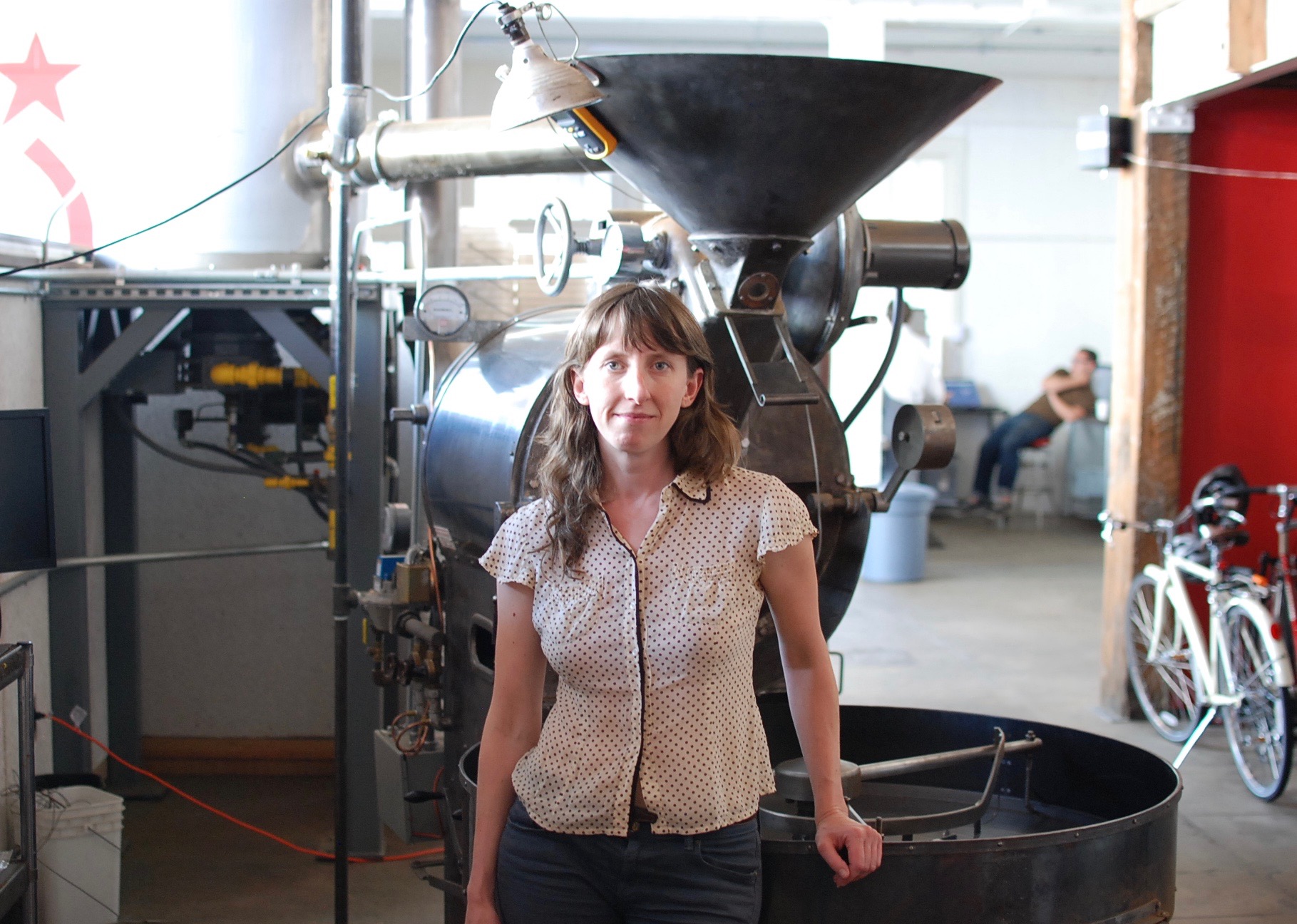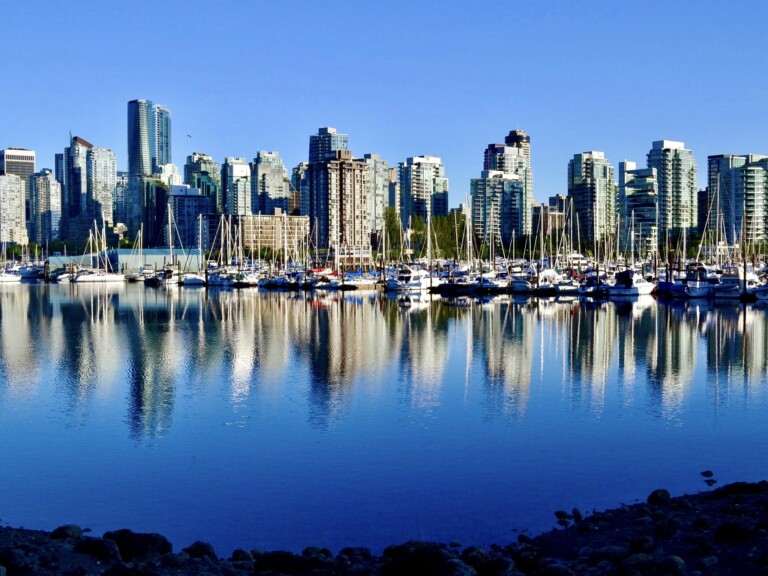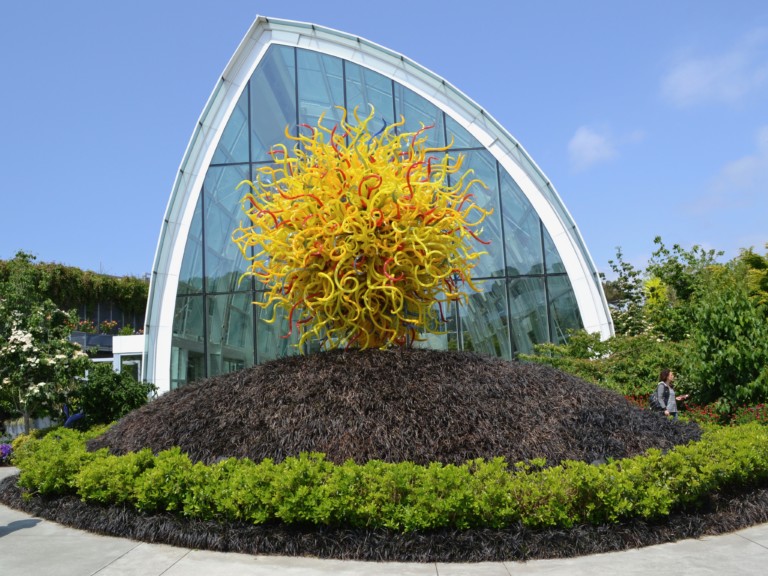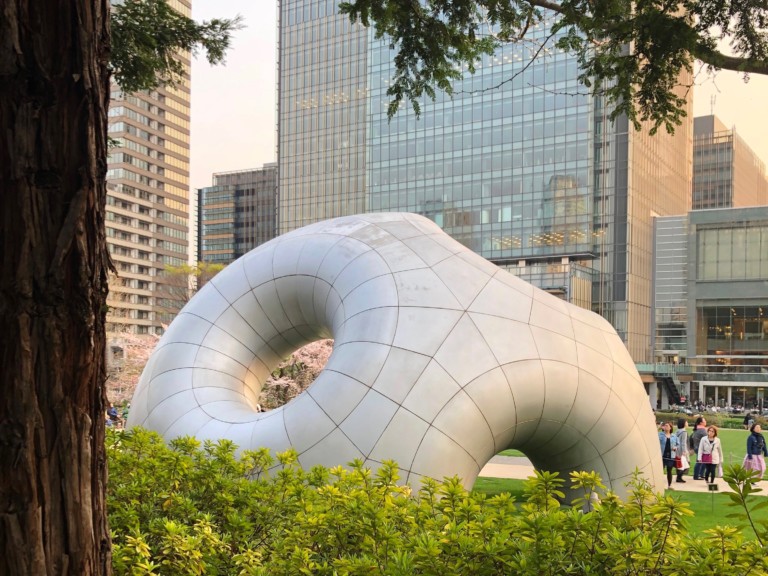Specialty coffee roasters continue to proliferate, and thanks to companies like Ritual Coffee Roasters, which Eileen Hassi co-founded in 2005, it’s never been a better time to drink coffee in San Francisco. Her company now has three retail locations in the city and an outlying operation in Napa’s Oxbow Public Market. On July 5, we met in SoMa at Ritual’s roasting facility, and Hassi better explained her background and vision for Ritual.
Is it easier or harder for you to accomplish what you want as a company with other coffee roasters popping up in San Francisco?
I think that it’s easier to be part of a community that’s all working toward the same thing. Maybe not exactly the same thing, but we’re all working to push the coffee industry forward. [points to bags of coffee] Right here I’ve got some Sightglass and Handsome sitting on my desk. Somebody might stumble upon Sightglass and be introduced to a great coffee through them and think, oh, “This is the first time I’ve had really great coffee.” And they could certainly say we’re not alone. We’re part of a community that’s doing this. There’s just awareness and customer knowledge. When we first opened in 2005, we did have people who had never had good coffee before. There’s less of that happening, which means that customers are more educated.
How do you feel like your company has evolved since 2005?
It’s changed a ton, in a really natural fashion. I think in 2005, the focus was the neighborhood around Valencia Street, sharing great cups of coffee with people and really focusing on preparation. Now our view is just so much bigger. There are definitely still baristas at Valencia Street obsessing over how the baskets that we have are affecting our extractions, but we also are focusing on our sourcing, so the ability to connect those baristas with our coffee producers is pretty phenomenal, and I feel like our worldview has just gotten a lot bigger, which is exciting.
What has growth allowed you to do that you weren’t able to do right away?
Sourcing is a big part of it, just being able to have somebody who’s dedicated to sourcing [Steve Ford]. With that comes different projects. One of the farms we’ve been buying from for the past three or four years now, we’re investing in the farm as far as helping them replant parts of the farm, and it’s really exciting to be able to know that we’ll be buying from them in five or 10 years, which is when those plants start producing coffee, which is really exciting. And I also just feel like we’ve gotten to be a better employer as we’ve gotten bigger. Now things like having benefits and sick pay and vacation pay, and now paternity leave for the first time, is really exciting for us. Back in 2005, that was all a lot more by the seat of our pants.
What prompted your initial interest in coffee?
It’s funny because I got into the coffee world, not as much through coffee as through a coffee shop. My first job in coffee was managing a coffee shop, and when I took that job, I’d never managed anyone, or anything, and I didn’t know anything about coffee. Coffee was something that I’d have after dinner in a nice restaurant, which meant that I’d never had really good coffee. But I immediately fell in love with the business, as far as interacting with people and being part of their day, and then seeing it all as a math problem to make it work, and figuring out what customers wanted, and how to manage staff and all of those things. That first job sent me to the SCAA here in San Francisco in April of 2000. David Schomer had a booth selling tampers and his books and his videos and he had an espresso machine. He was making epresso and macchiatos and I was just totally blown away. I was like, “What are you doing?!” Cause at that point I’d been a barista for six months – not even – and I’d never made a drink that looked anything like that or tasted anything like that. So I was totally blown away.
So that was an epiphany moment?
That was a huge epiphany moment, and I just stood there asking questions and trying to learn as much as I could, and I went home to, at that time, D.C.
What was the coffeehouse?
It was the coffeehouse in the bottom of the bookstore Politics & Prose, which is this phenomenal bookstore. It was a great introduction. The owners of the bookstore are amazing small business owners. I learned a lot from them, and they were very supportive of me figuring out how to run their coffee shop, which was an amazing experience, but I didn’t last long in D.C. It wasn’t the right place for me, so I moved to Seattle and looked for a job in coffee.
What was it?
My first job – again – I had a cappuccino and I was like, “This is so good. How do they make this?” So I asked for a job, and that was at Torrefazione Italia. It’s funny now because I couldn’t get a job at any of the independent places. I’d bug Vida, Vivace and Victrola every week for a job and nobody hired me, because I didn’t know anybody. It was a great learning experience, because I learned a ton about how to be a barista. I’m not going to lie, they didn’t have the best coffee in Seattle, but they did really good coffee considering it was a 22-location chain. I still have yet to see a company get that big and maintain the type of quality that they did. But it was a great experience as far as understanding how a company like that was run.
Could you imagine having 22 locations?
No. At this point I have four coffee bars plus the roastery, so I have five places that I need to go and see. I guess I like the fact that each of my stores is different, which means it requires personal attention. Even the way problems are handled, or even the way things are, it’s different in every store, which I think is good cause it means it’s worth going to each of the stores. You get a different experience. And I think when you have 22 stores you have to make things so uniform, so you make rules and protocol and standardization and all of that, and that just doesn’t seem appealing to me. And there’s no way to physically manage and be able to visit 22 stores and have relationships with 22 managers. That seems like it wouldn’t be very fun.
Are there any more plans for growth in San Francisco or beyond?
The only plan right now is that – this building was originally the Egyptian Hardware Manufacturing Company – and so the main space is where the hardware was manufactured, up here was the office, and there’s the showroom downstairs, and I think that showroom would make a really nice little coffee bar. That wouldn’t require another place for me to go. At some point, I think it would be really fun to have a coffee bar, because people show up here all the time. Like right now, I’d love to be able to offer you a coffee, but there aren’t ways to make – well, we have ways of making coffee – but it’s not efficient.
What continues to inspire you about coffee?









Leave a Comment